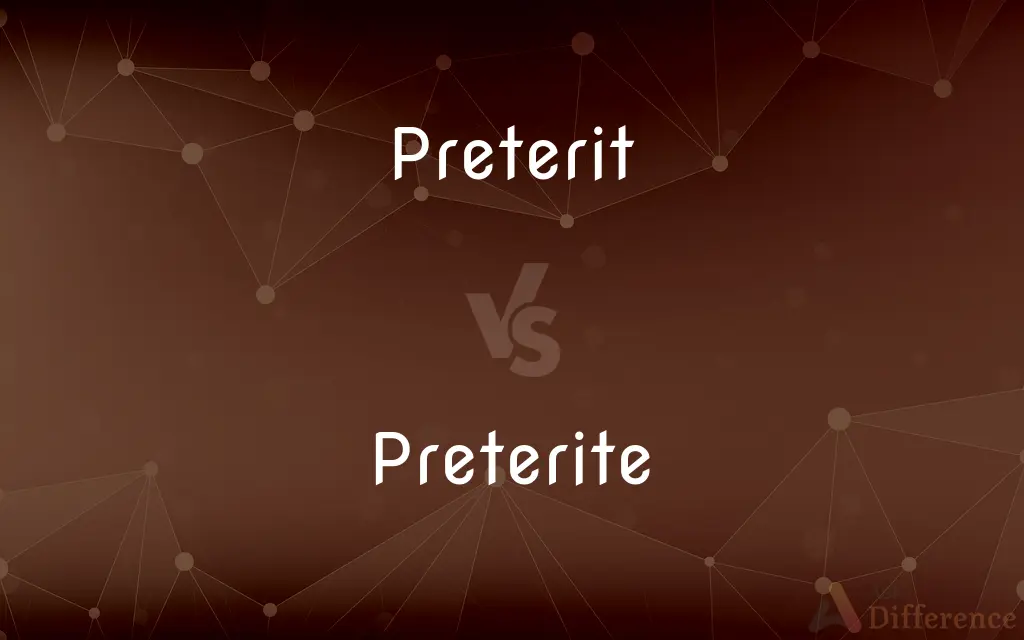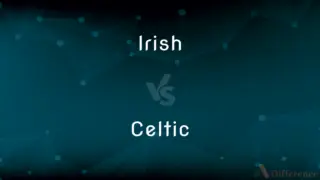Preterit vs. Preterite — What's the Difference?

Difference Between Preterit and Preterite
ADVERTISEMENT
Compare with Definitions
Preterit
Of, relating to, or being the verb tense that describes a past action or state.
Preterite
The preterite or preterit (; abbreviated PRET or PRT) is a grammatical tense or verb form serving to denote events that took place or were completed in the past. In general, it combines the perfective aspect (event viewed as a single whole; it is not to be confused with the similarly named perfect) with the past tense, and may thus also be termed the perfective past.
Preterit
The verb form expressing or describing a past action or condition.
Preterite
Of, relating to, or being the verb tense that describes a past action or state.
Preterit
A verb in the preterite form.
ADVERTISEMENT
Preterite
The verb form expressing or describing a past action or condition.
Preterit
Alternative form of preterite
Preterite
A verb in the preterite form.
Preterit
Alternative form of preterite
Preterite
Showing an action at a determined moment in the past.
Preterit
Past; - applied to a tense which expresses an action or state as past.
Preterite
Belonging wholly to the past; passed by.
Preterit
Belonging wholly to the past; passed by.
Things and persons as thoroughly preterite as Romulus or Numa.
Preterite
(grammar) A grammatical tense or verb form serving to denote events that took place or were completed in the past.
Preterit
The preterit; also, a word in the preterit tense.
Preterite
Same as Preterit.
Preterit
A term formerly used to refer to the simple past tense
Preterite
A term formerly used to refer to the simple past tense
Share Your Discovery

Previous Comparison
Unobfuscated vs. Obfuscate
Next Comparison
Irish vs. Celtic














































